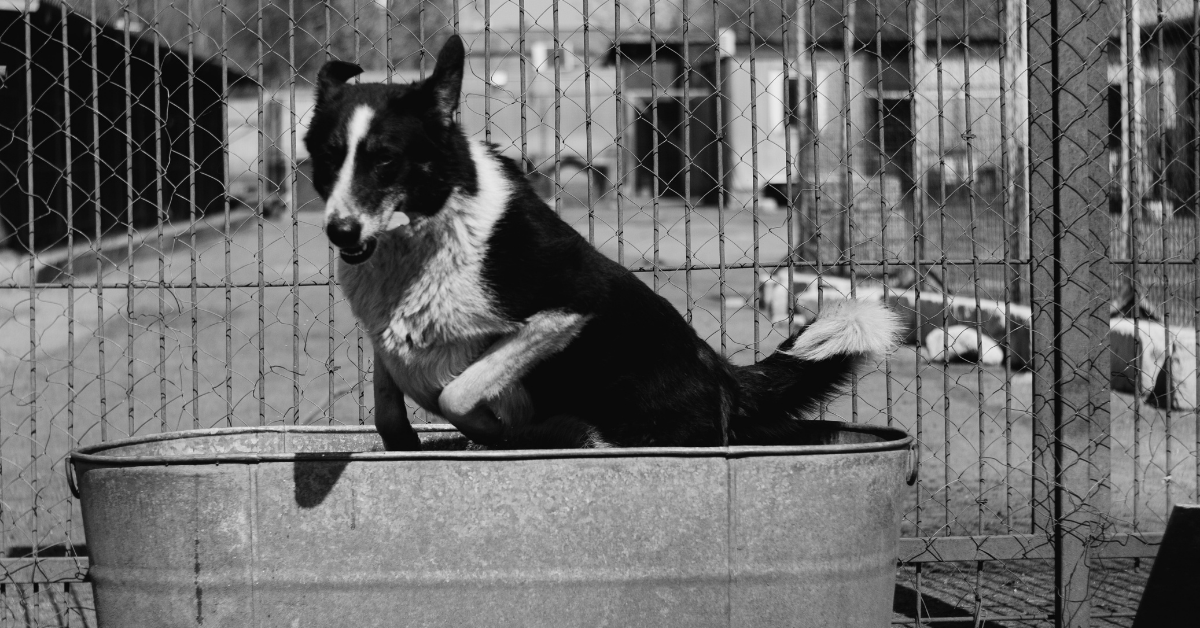
Home Away from Home: Choosing a Boarding Kennel
We all wish our pets could be with us everywhere we go but this is often impractical or impossible. Thus, many pet owners find themselves having to decide on one of the boarding kennels in their area. Here I hope to give you a few of the most important things you will want to consider when choosing a local boarding kennel to care for your pet while you are away.
First, whenever possible, you should personally visit any boarding kennels you are considering. Pick two or three so you can do some comparison-shopping. You may want to do some phone shopping ahead of time to get some basic information such as cost, extra services offered, etc. This can help narrow down your choices. Once you decide on which facility (or facilities) to visit, DO NOT call to make an appointment for a tour. A well-run kennel will not mind if you drop in and will be happy to accommodate you. It is best, though, not to visit first thing in the morning or late in the day, as those are the busiest times for the staff. Also, when visiting a kennel, it is best NOT to bring your pet along on the tour. It can be disruptive to the animals already at the kennel and make it harder to communicate with the staff.
One of the first things you will want to observe is the staff. Are there enough employees for the number of pets in the facility? Do they seem to enjoy their job? If they have any play groups that you can observe, notice the interaction the employees have with the pets. Are they engaging the pets in activity or standing around? These people will be taking care of your pet, so it’s important to get a good “vibe” from them.
Another very important aspect is, of course, the cleanliness of the facility. Any kennel that is housing dozens (or in some cases hundreds) of pets is more than likely going to have a slight “doggy” smell, but it shouldn’t be overwhelming. And it certainly shouldn’t smell like urine or feces. Ask how often the kennels and yards are sanitized. Kennels should be sanitized at least once a day and yards twice a day. Also, notice the size of the kennels. If you have a very large dog, do they have kennels big enough to accommodate them? Also, if you have two or more dogs that you want to board together, do they have kennels large enough to accommodate multiple dogs?
Ask what a typical day is like for the pets. What is the feeding schedule? How many times a day do the pets get to go out? What time does the staff arrive in the morning and leave at night? Is somebody there 24 hours? If not, what kind of monitoring system do they have for fire and other emergencies?
Be sure to ask about any extra charges. Some facilities charge extra for using owner’s food, bringing your own bedding, dispensing medications, etc. Do they offer extra services, such as playtime and treats, and what are the costs for these services? Will your pet get a free bath before going home? Also be sure to ask about “check-out” times. Some kennels won’t charge for the day of pick-up as long as you pick up before a certain time. When touring a kennel, they should give you a list of all prices. If getting this information over the phone, ask for a total estimate.
Find out what vaccines are required before taking your pet to board. Check with your veterinarian to make sure your pet is up to date on all vaccines. Be careful when inquiring about the Bordetella (or Kennel Cough) vaccine. Many boarding kennels require a 6-month vaccine, but some veterinarians give a 1-year vaccine. So make sure your dog has the proper vaccine prior to arriving at the kennel or this may delay your trip.
You will want to find out how any emergency is handled. You will be asked to provide your pet’s veterinary information, but there should be a nearby vet that they work with for any emergencies. Ideally, there should be at least one person on staff at all times who knows pet CPR and emergency first aid.
Some owners may opt for boarding their pet at their vet’s office. If boarding your pet at a veterinary hospital, ask to see where your pet will be staying. They should have a separate boarding area away from pets that are in the hospital, as well as a separate staff. If it is the same staff taking care of boarding pets as well as hospital pets, the boarders may not get as much attention as they should, as well as the potential for spreading diseases.
One of the best sources for finding a good boarding kennel is other pet owners. Another excellent source is Pet Care Services Association (formerly American Boarding Kennel Association). Visit their website at www.petcareservices.org for a listing of kennels in your area.
It’s always hard to leave your pets in the hands another when we can’t take them along, but rest assured, it is usually harder on the owner than it is on the pet. When you find the right boarding kennel, it can be a positive experience for both you and your pet. Maybe your pet will make some new friends in the process.






